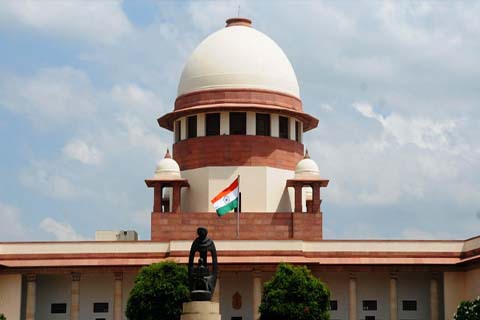New Delhi: In a big jolt to Odisha government ahead of upcoming urban local body elections, the Supreme Court Friday dismissed the petition of the state government challenging the Odisha High Court order on reservation of seats in urban local bodies’ (ULB).
A two-judge bench comprising Justice Uday Umesh Lalit and Justice Sanjay Kishan Kaul upheld the order of the Odisha High Court and said that the reservation of seats cannot exceed 50 per cent in the forthcoming urban local body elections. “The Odisha High Court’s order is in conformity with K Krishnamurthy judgment,” observed the bench.
Citing the judgment of apex court in K Krishnamurthy versus the Union of India in 2010, the Odisha High Court had directed the state government to not exceed the limit beyond 50 per cent of total seats for the Scheduled Castes (SC), Scheduled Tribes (ST) and Other Backward Classes (OBC) in the non-scheduled areas for the forthcoming ULB polls.
The Supreme Court in K Krishnamurthy judgment had said that the upper ceiling of 50 per cent vertical reservations in favour of SC/ST/OBCs should not be breached in the context of local self-government. Exceptions can only be made in order to safeguard the interests of Scheduled Tribes in the matter of their representation in panchayats located in the Scheduled Areas.
Counsel for the state government, Shibashish Misra, said, “our argument was the scheduled areas might have beyond 50 per cent reservation and it is permissible as per the K Krishnamurthy judgment if we include 27 per cent of OBC and where the population of tribals is more than 33 per cent”.
However, the apex court said that the High Court has given liberty to go beyond 50 per cent in scheduled areas.
The state government had reserved more than 50 per cent seats in several urban local bodies in 2012, 2013 and 2017 polls. Around 100 petitions were filed in the High Court challenging the increase in reservation.
Power of Continuity
Since its second term, the Modi government has retained top civil servants beyond retirement for ‘continuity in policymaking’. Weeks after...
Read more






































